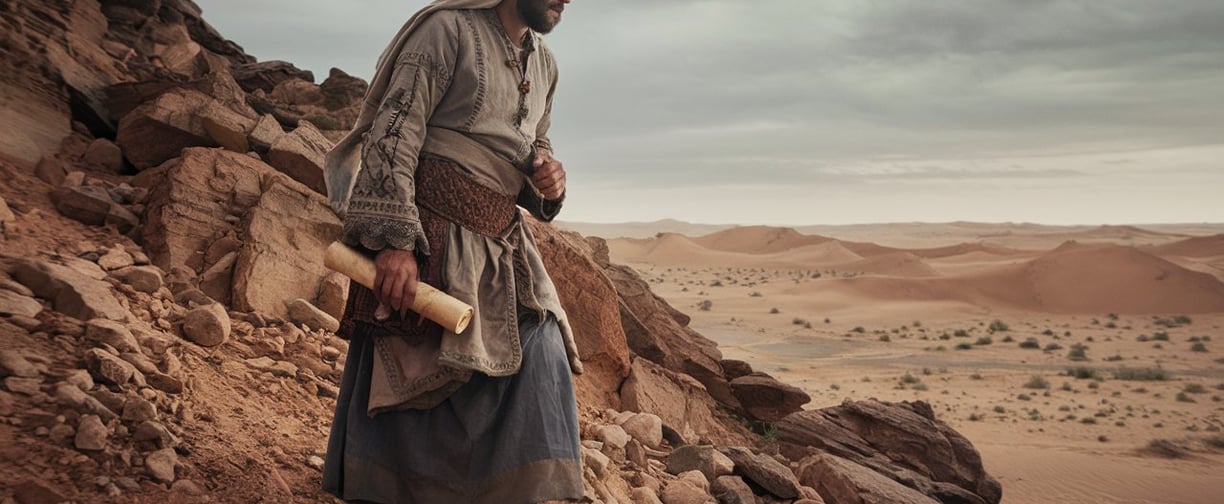The Life and Travels of Ibn Battuta: A Forgotten Explorer of the Medieval World
8/24/20242 min read


My post content
When it comes to explorers of the medieval world, Marco Polo often takes center stage in Western narratives. However, Ibn Battuta, a Moroccan scholar and traveler, embarked on a journey that spanned nearly three times the distance of Marco Polo’s adventures, covering over 75,000 miles across Africa, the Middle East, South Asia, Southeast Asia, and China. His travels, recorded in a book known as "The Rihla" (The Journey), provide a unique perspective on the medieval world through the eyes of a Muslim traveler, offering insights into the diverse cultures, societies, and traditions he encountered.
Early Life and Motivation for Travel
Born in Tangier, Morocco, in 1304, Ibn Battuta came from a family of Islamic legal scholars. At the age of 21, he set out on a pilgrimage to Mecca, known as the Hajj, a journey that would mark the beginning of his extensive travels. Unlike many other explorers whose journeys were driven by trade or conquest, Ibn Battuta’s motivations were spiritual and educational. He sought to learn from the scholars and holy men he met along the way, and his status as a qadi (Islamic judge) often afforded him hospitality and protection.
A Journey Across Continents
Ibn Battuta’s journey took him to some of the most prominent Islamic empires of the time, including the Mamluk Sultanate of Egypt, the Delhi Sultanate in India, and the Mali Empire in West Africa. His travels were not limited to Muslim-majority regions, however. He ventured as far as China, where he visited the Yuan Dynasty’s imperial court, and documented his observations on Chinese society, culture, and religion.
His accounts offer a rare glimpse into the Islamic world’s interconnectedness during the medieval period. For instance, his descriptions of the bustling trade routes in the Indian Ocean, the vibrant cities of Cairo, Baghdad, and Damascus, and the spiritual life of the Muslim communities he visited highlight a world far more interconnected than often depicted in Western histories.
Challenges and Adventures
Ibn Battuta’s journey was not without its challenges. He faced shipwrecks, bandit attacks, and political intrigue. In the Maldives, he served as a judge but was forced to flee due to political rivalries. In India, he narrowly escaped execution after becoming embroiled in court politics. Despite these dangers, his wanderlust remained undiminished.
His journey also reflects the cultural and intellectual exchanges of the time. In Mali, he marveled at the wealth of the Mali Empire and the piety of its ruler, Mansa Musa. In Anatolia (modern-day Turkey), he witnessed the Sufi dervishes' spiritual practices. His travels were a testament to the cultural richness and diversity of the medieval Islamic world.
The Legacy of Ibn Battuta
Despite the vastness of his travels, Ibn Battuta’s legacy outside the Islamic world remains relatively obscure. His work, "The Rihla," is less well-known in the West compared to the works of contemporaries like Marco Polo. However, his travels offer an invaluable perspective on the medieval world, providing insights into the societies and cultures that shaped it.
Ibn Battuta’s journey stands as a remarkable example of human curiosity and the desire for knowledge and spiritual growth. His extensive travels remind us that the medieval world was far more interconnected than often portrayed, with trade, religion, and culture crossing boundaries long before the age of European exploration.
Explore
Uncovering hidden stories from the past.
Connect
Discover
© 2024. All rights reserved. The Unseen History logo is registered trademark.
